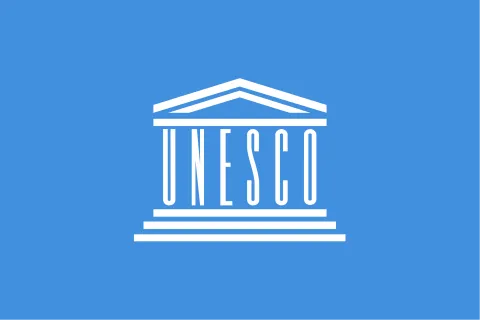
On 25th November 2021, Audrey Azoulay, Director-General of UNESCO, presented the first-ever global standard on the ethics of artificial intelligence. The latter has been adopted by all UNESCO Member States at the General Conference.
The social and human science commission report is 39-pages long, and the result of five meetings of an Ad Hoc expert group, formed by 24 renowned specialists with multidisciplinary and pluralistic experience on the subject.
Being the document a Recommendation (instead of a declaration), it enables UNESCO to outline specific proposals to the Member States. It is not binding, but MS will be required to report on the measures taken.
The Recommendation aims to direct the development of the regulatory framework to guarantee the appropriate advancement of AI. Stimulating new and responsible research and innovation practices that anchor AI technologies in human rights, values and principles, and moral and ethical reflection.
The UNESCO represents as artificial intelligence is everywhere in our everyday life, supports the decision making of governments and the public sectors, and can contribute to achieving the Sustainable Development Goals.
However, it is widely known that AI entails vast potential risks. The recommendations issued by UNESCO aim to take advantage of artificial intelligence while addressing risks and ethical concerns.
Besides, a multi-stakeholder consultation process was conducted concerning the document, based on 1) an online public consultation; 2) a regional and subregional virtual consultation co-organized with host countries/institutions in all of UNESCO’s members, and 3) an open, multi-stakeholder, and citizen deliberation workshops organized by partners.
The Recommendation avoids presenting a single definition of AI, explaining that it would probably need to be changed over time.
Therefore, UNESCO represents as “this Recommendation approaches AI systems as technological systems which can process information in a way that resembles intelligent behaviour, and typically includes aspects of reasoning, learning, perception, prediction, planning or control”.
Moreover, three elements have a central role.
Firstly, it is stated that AI systems are information-processing technologies that embody models and algorithms that produce a capacity to learn and perform cognitive tasks leading to outcomes such as prediction and decision-making in real and virtual environments. AI systems may include several methods, such as but not limited to: (i) machine learning (ii) machine reasoning, (iii) cyber-physical systems.
On a second note, it is highlighted as ethical questions regarding AI systems pertain to all stages of the AI system life cycle.
Then, as AI systems raise new types of ethical issues that include, but are not limited to, their impact on decision-making, employment and labour, social interaction, health care, education, media, freedom of expression, access to information, privacy, democracy, discrimination, and weaponization. Moreover, AI also has the potential to reproduce biases.
The Recommendation is divided into 1) values and principles, 2) areas of policy action, 3) monitoring and evaluation.
Concerning the values, the focus is on a) respect, protection and promotion of human dignity, human rights and fundamental freedoms, b) environment and ecosystems flourishing, c) ensuring diversity and inclusiveness, d) living in harmony and peace.
On the principles, the attention is on a) proportionality and do not harm, b) safety and security, c) fairness and non-discrimination, d) sustainability, e) privacy, f) human oversight and determination, g) transparency and explainability, h) responsibility and accountability, i) awareness and literacy, l) multi-stakeholder and adaptive governance and collaboration.
Besides, the “areas of policy action” section aim to operationalize and put in place policy frameworks concerning the values and principles mentioned above.
They are divided into Policy Area 1 – Ethical impact assessments; Policy Area 2 – ethical governance and stewardship; Policy Area 3 - Data policy; Policy Area 4 – Development and international cooperation; Policy Area 5 – Environment and ecosystems; Policy Area 6 – Gender; Policy Area 7 – Culture; Policy Area 8 - Education and research; Policy Area 9 – Economy and Labour; Policy Area 10 – Health and social well-being.
On the monitoring and evaluation phase, it is stated that governing structures should transparently monitor and evaluate policies and mechanisms related to the ethics of AI, through a combination of quantitative and qualitative approaches.
UNESCO will contribute by developing a methodology for Ethical Impact Assessment, identifying their status, evaluating ex ante and ex-post the effectiveness of AI ethics’ policies, strengthening the research and evidence-based analysis of reporting policies, and collecting and disseminating progress, innovations and research regarding policies for AI ethics.
The UNESCO Recommendation represents the first global standard on the ethics of artificial intelligence. Considering this, it would have probably been difficult to ask for more. International cooperation in regulating Artificial Intelligence is a must, also considering its cross-border impacts. However, the document is a Recommendation and as such, it envisages principles and general indications. However, it can not be hidden as this work required over two years and, as widely known, tech development does not wait for policy recommendations. Having now found a general agreement on standards, and being international cooperation the key, this can not be considered enough. The discussion should now be divided into agreements on individual sectors (as risks also change based on where AI is applied), provide explicit action planning with predetermined deadlines, and go beyond ethical principles.
The full report containing a description of each value, principle and policy area mentioned is available here.

Luca Megale
is a PhD Student at LUMSA University of Rome
and tutor of the European Master in Law and Economics - EMLE (Rome term).
Submitted on Tue, 01/04/2022 - 10:19

